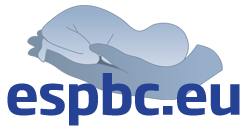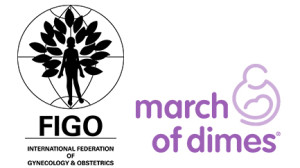Research areas
Our main focus of research is to understand and describe different aspects of the preterm delivery process and child outcome, to explore the genetics and gene by environment interaction of timing of birth (including preterm delivery
and post term delivery).
We also aiming to explore basic epidemiological relations regarding preterm delivery and child outcome and to develop and test different methods for improving fetal medicine.
and post term delivery).
We also aiming to explore basic epidemiological relations regarding preterm delivery and child outcome and to develop and test different methods for improving fetal medicine.
Cohort-Based Genetic Studies
|
In genome-wide association studies we investigate genetic code of thousands of mothers and their children in order to find the genes that play role in determining the duration of gestation. The knowledge of such genes can explain the biology behind the timing of birth and parturition mechanisms. In gene-environment interaction studies we try to identify women whose genetic profile makes their gestation extremely sensitive to common environmental exposures, such as caffeine intake, smoking, vitamins, microelements, probiotic products. Such women should receive personalized recommendations for their diet and supplements use during pregnancy.
Our genetic team: Jonas Bacelis, Julius Juodakis, Ronny Myhre. |
Cohort-Based Biomarker Studies
|
Cohort Study and its large cohort of women has created unique conditions for nutritional studies. We explore the relationship between various dietary environmental exposures during the pregnancy and the risk of delivering preterm. These studies generate hypotheses of causality which can later be tested in the randomized clinical trials.
Our nutrition team: Verena Sengpiel, Linda Englund-Ögge. |
Register Based Epidemiology Studies
|
We explore incidence/prevalence rates, comorbidities and heritability estimates of various pregnancy phenotypes. We perform an in-depth investigation of common risk factors and predictors of preterm delivery such as maternal height, age, BMI, parity.
Our epidemiology team: Verena Sengpiel, Linda Englund-Ögge, Kina Ahlin, Patricia Johansson, Nona Sargisian, Mahsa Nordqvist, Ali Khatibi Esfangani, Tomas Fritz. |
Cohort-based Nutrition Studies
|
Cohort Study and its large cohort of women has created unique conditions for nutritional studies. We explore the relationship between various dietary environmental exposures during the pregnancy and the risk of delivering preterm. These studies generate hypotheses of causality which can later be tested in the randomized clinical trials.
Our nutrition team: Verena Sengpiel, Linda Englund-Ögge. |
Activities
The Nordic Network of Fetal Medicine
The European Spontaneous Preterm Birth Congress
|
The 2nd European Spontaneous Preterm Birth Congress, ESPBC, will take place in Gothenburg Sweden in May 26th-28th 2016. The congress, an event held every second year, is intended to be a conference venue for experts from all over of the world with special focus on the European situation. The ESPBC is organized with FIGO participation.
The main objective of the meeting is to give the international scientific community in the field of Spontaneous Preterm Birth the opportunity to give and exchange scientific information on the current knowledge and get updates on the last findings. For more information and latest news visit espbc.eu |
FIGO & MOD
|
We are also happy to continuing having a close collaboration with the leadership
of both The International Federation of Gynecology and Obstetrics (FIGO) and The March of Dimes (MOD), in order to develop a program for action to promote the prevention of preterm delivery world-wide. For more information about the organisations, visit FIGO or MOD. |
Partnerships
The Perinatal Laboratory group are currently working with a variety of international organizations and public institutions. The most important partnerships are listed below.
- Socialstyrelsen
- World health organisation/PMNCH (WHO)
- March Of Dimes (MOD)
- World health organisation/maternal (WHO)
- The International Federation of Gynecology and Obstetrics (FIGO)
- European Spontaneous Preterm Birth Congress (ESPBC)
- Nordic Network of Fetal Medicine (NNFM)
- Preterm Birth International Collaborative (PREBIC)
- Folkehelseinstitutet (FHI)
Funding
Fundings are the main important thing for scientific development and to take the research to the level we want. Without fundings we would not have the opportunity to progress and look for solutions. Also for The Perinatal lab this is true. Our group obtains grants by several international and national organizations, foundations and research councils. The funding is mainly received in international competitions. Below is a list of important financial support.




